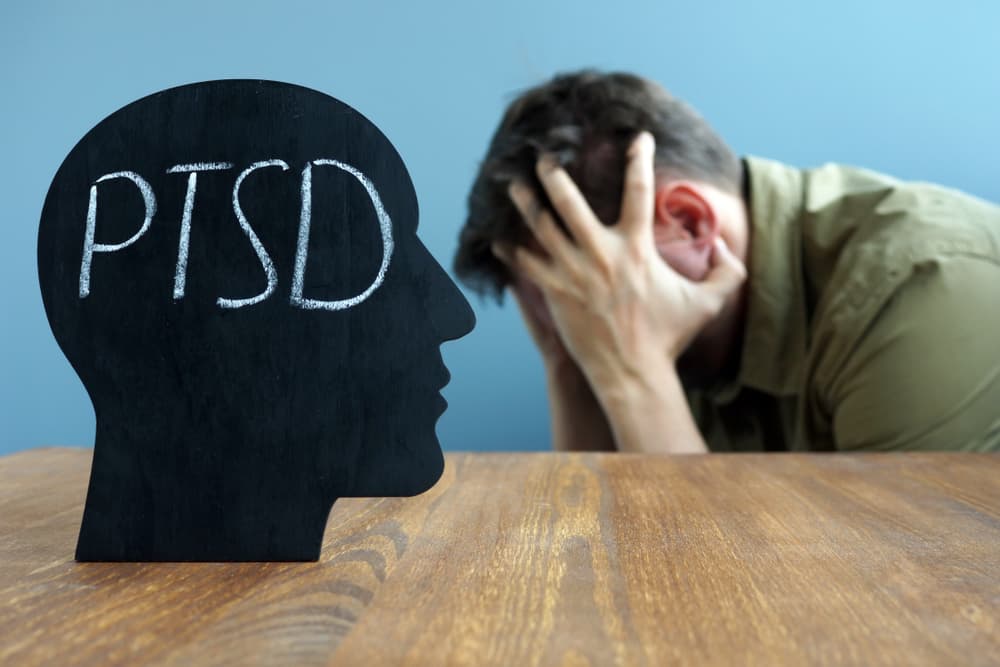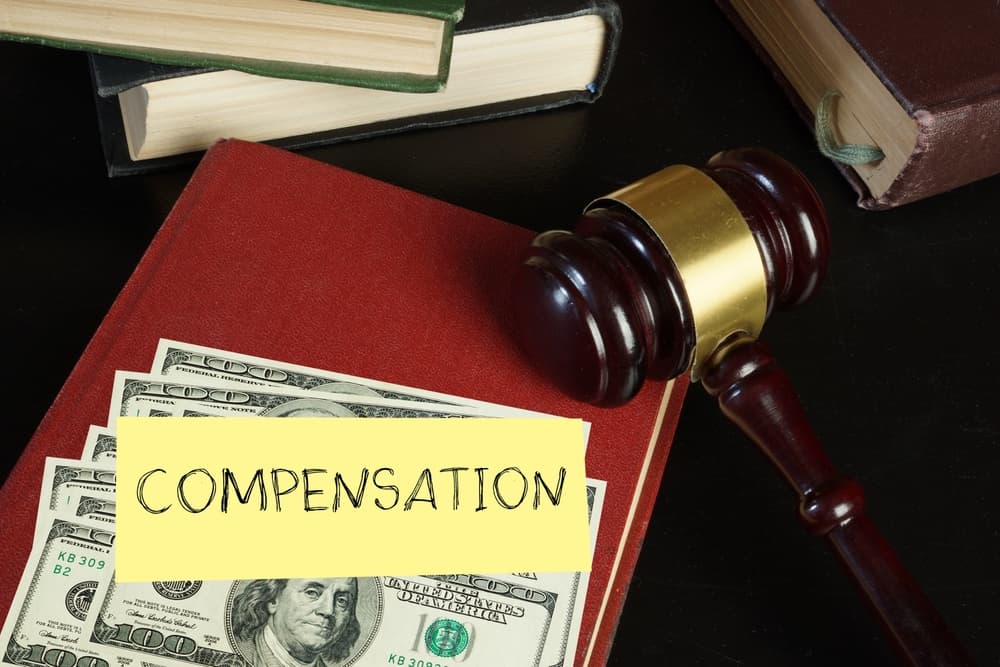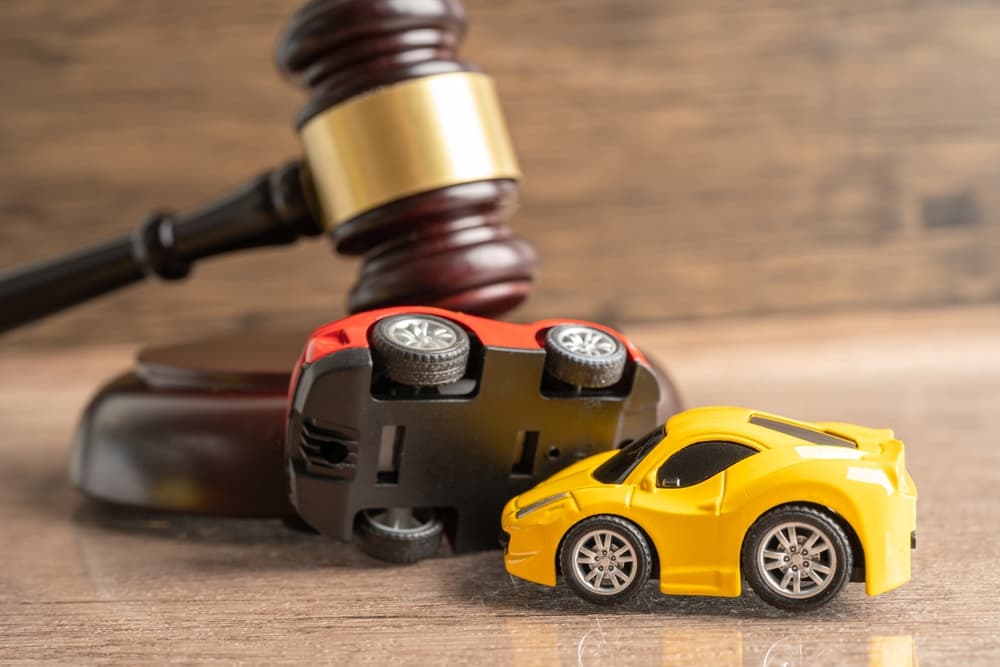Three weeks after your collision on Highway 99, the nightmares begin. Your heart races each time you pass Ming Avenue, the site of the crash. Even simple errands, like grocery shopping at Valley Plaza, bring back the sounds of screeching tires that make your chest tighten and your palms sweat.
Post-traumatic stress disorder (PTSD) after a car accident affects thousands of people across Bakersfield who never expected emotional injuries to outlast their physical pain. This condition can interfere with sleep, work, relationships, and the ability to feel safe behind the wheel again.
At The Law Offices of Mickey Fine, our Bakersfield car accident attorneys recognize how deeply PTSD can affect your daily life. We work with experienced medical professionals and use thorough documentation to build strong compensation claims for emotional trauma linked to motor vehicle accidents.
Call (661) 333-3333 today to speak with a lawyer who understands the lasting impact of car accident-related PTSD and can guide you toward recovery.
Key Takeaways About PTSD After a Car Accident
- PTSD often emerges within several weeks or months after serious car accidents. Motor vehicle collisions are among the most common traumatic events associated with PTSD diagnoses nationwide.
- California law recognizes PTSD as a compensable injury when properly documented through medical diagnosis and treatment records.
- Symptoms range from flashbacks and insomnia to physical manifestations like chest pain and dizziness that disrupt daily activities.
- Compensation for PTSD includes medical treatment costs, lost wages, and pain and suffering damages beyond physical injury claims.
- Professional diagnosis using DSM-5 criteria provides the foundation for successful PTSD compensation claims.
Recognizing PTSD Symptoms After Car Accidents
Post-traumatic stress disorder manifests differently in each accident victim, but certain patterns emerge consistently following vehicle collisions. The condition extends far beyond normal adjustment difficulties that most people experience after traumatic events.
While typical emotional responses fade within weeks, PTSD persists for months or years without proper treatment, fundamentally altering how victims interact with the world.
Physical symptoms often accompany the psychological aspects of PTSD, creating a complex web of suffering that affects every aspect of daily life. Victims may experience chest pain, stomach problems, chronic headaches, and dizziness that doctors cannot attribute to physical injuries. These somatic symptoms reflect the body's ongoing stress response to unresolved trauma.
Common Psychological Manifestations
Mental and emotional symptoms of PTSD create barriers to normal functioning that victims struggle to overcome without professional help. Recognition of these signs helps establish the medical documentation necessary for compensation claims.
- Intrusive flashbacks that occur during routine activities or while sleeping
- Hypervigilance causing excessive startle responses to normal sounds
- Emotional numbing that distances victims from loved ones
- Avoidance behaviors preventing return to normal driving patterns
- Concentration problems affecting work performance and relationships
These symptoms interact and amplify each other, creating cycles of distress that professional treatment must address systematically.
Sleep disruption represents one of PTSD's most persistent symptoms, with victims experiencing nightmares, insomnia, or both. The inability to rest properly exacerbates other symptoms, creating exhaustion that makes recovery more difficult. Many victims report being unable to sleep without medication months after their accidents.
Medical Documentation Requirements for PTSD Claims

Establishing PTSD involves more than merely describing symptoms to insurance adjusters, who often downplay psychological injuries. Under California Evidence Code §§ 1010–1014, communications with psychotherapists are protected by privilege, though limited disclosure may be permitted when pursuing legal claims. Your attorney manages these privacy concerns while assembling compelling medical evidence to support your case.
Professional diagnosis using the Diagnostic and Statistical Manual of Mental Disorders (DSM-5) criteria establishes PTSD as a legitimate medical condition rather than temporary distress. Mental health professionals must document specific symptom clusters including re-experiencing, avoidance, negative mood changes, and altered arousal patterns. This clinical assessment provides objective validation of subjective suffering.
Treatment Records That Support Claims
Ongoing treatment documentation demonstrates PTSD's severity and duration, countering insurance arguments about temporary emotional upset. Your car accident lawyer collects comprehensive records showing treatment progression.
- Initial psychiatric evaluations establishing baseline symptoms
- Therapy session notes documenting ongoing struggles
- Medication prescriptions indicating symptom management needs
- Hospital records from panic attack emergency visits
- Work disability assessments showing functional impairment
Consistent treatment records over time prove PTSD's persistent nature and justify compensation for future care needs.
Insurance companies often request independent medical examinations to challenge PTSD diagnoses. Your attorney prepares you for these evaluations and may arrange for your treating providers to review opposing opinions. Strong therapeutic relationships and consistent treatment histories counter attempts to minimize legitimate psychological injuries.
California Laws Protecting PTSD Victims' Rights
In California, you can get compensation for emotional distress if you prove it with medical evidence. Under California Civil Code Section 3333, you can recover money for non-economic damages like pain, suffering, and emotional distress. PTSD is included in these damages if it’s caused by someone’s negligence that led to your accident.
The state's comparative negligence system permits recovery even when victims share partial fault for accidents. Your PTSD compensation reduces proportionally to fault percentage but doesn't disappear entirely. This protection proves especially valuable since trauma responses during accidents sometimes contribute to collision severity.
Time Limits to File a PTSD Claim After a Car Accident
Time limits for filing PTSD claims require careful attention since symptoms may not manifest immediately after accidents. California generally provides two years from the accident date to file personal injury lawsuits. However, the discovery rule may extend this deadline when PTSD develops or gets diagnosed later.
Your car accident lawyer evaluates whether delayed discovery arguments apply to your situation. Documentation showing when symptoms began and when medical professionals connected them to your accident supports these arguments. Early consultation protects your rights even if PTSD hasn't fully developed yet.
PTSD Compensation After a Car Accident in California

PTSD compensation encompasses both economic and non-economic damages reflecting the condition's comprehensive impact on victims' lives. Economic damages include quantifiable costs like therapy sessions, psychiatric appointments, and prescription medications. Many victims require years of treatment, making future medical expense calculations particularly important.
Lost income represents another significant economic damage when PTSD prevents normal work activities. Victims may miss work for treatment appointments, experience reduced productivity from concentration problems, or become completely unable to maintain employment. Your attorney documents these losses through employment records, tax returns, and vocational evaluations.
Non-economic damages address PTSD's intangible but profound effects on life quality. Pain and suffering compensation recognizes the daily struggle of managing symptoms, experiencing panic attacks, and losing enjoyment from previously pleasurable activities. Loss of consortium claims acknowledge damaged relationships when PTSD creates emotional distance from spouses and children.
Estimating Long-Term PTSD Treatment Costs After a Crash
PTSD treatment often extends for years, requiring careful projection of future expenses. Treatment planning involves multiple therapeutic modalities that evolve as recovery progresses. Initial crisis intervention gives way to trauma-focused therapy, followed by maintenance treatment, preventing relapse.
- Intensive therapy phases requiring multiple weekly sessions
- Psychiatric medication management with regular adjustments
- Specialized treatments like EMDR or neurofeedback therapy
- Residential treatment programs for severe cases
- Long-term maintenance therapy preventing symptom recurrence
These treatment phases create varying cost levels that your attorney accounts for when calculating total compensation needs. Expert testimony from treating providers establishes realistic treatment duration and intensity requirements.
In serious or long-term PTSD cases, attorneys may consult life-care planners or medical experts to project future treatment costs.
Best Treatment Options for Car Accident PTSD Recovery
Effective PTSD treatment combines multiple therapeutic approaches tailored to individual needs and symptom severity. Cognitive-behavioral therapy helps victims understand how trauma distorts thinking patterns and develops healthier coping mechanisms. Eye movement desensitization and reprocessing (EMDR) specifically targets trauma memories, reducing their emotional intensity.
Medication management often supports therapy by addressing anxiety, depression, and sleep disturbances that accompany PTSD. Antidepressants, anti-anxiety medications, and sleep aids help stabilize symptoms while victims engage in therapeutic work. Your treatment team monitors medication effectiveness and adjusts prescriptions as recovery progresses.
Support groups provide peer connections with others experiencing similar struggles after traumatic events. Bakersfield offers various trauma support groups through Kern Behavioral Health and Recovery Services. These groups reduce isolation and share practical strategies for managing PTSD symptoms in daily life.
How a Bakersfield Car Accident Lawyer Handles PTSD Claims

The Law Offices of Mickey Fine brings three decades of experience representing accident victims with both physical and psychological injuries throughout Kern County.
Located at 930 Truxtun Avenue in downtown Bakersfield, the firm recognizes that emotional trauma often proves more debilitating than broken bones or lacerations. Mickey Fine works closely with mental health professionals who understand trauma's long-term effects on accident victims.
Your car accident lawyer coordinates with psychiatrists, psychologists, and therapists to document PTSD's impact on your daily life. The firm gathers medical records, treatment notes, and professional evaluations that insurance companies cannot dismiss as temporary upset. This comprehensive approach builds compelling cases for compensation that addresses both immediate treatment needs and long-term psychological care.
Operating on contingency fees means The Law Offices of Mickey Fine only succeeds when you receive fair compensation for all injuries, including PTSD. The firm's reputation throughout Bakersfield for handling complex injury cases motivates insurance companies to take psychological trauma claims seriously rather than dismissing them as exaggerated emotional responses.
FAQ for Car Accident Lawyers
How long after a car accident might PTSD symptoms appear?
PTSD symptoms typically emerge within three months of accidents but may not appear for months or even years later. Delayed onset PTSD remains compensable when properly linked to your accident through medical documentation. Early mental health screening helps identify developing symptoms before they become debilitating.
What if I had anxiety or depression before my car accident?
Pre-existing mental health conditions don't prevent PTSD compensation when accidents worsen your psychological state. Your attorney demonstrates how the crash exacerbated previous conditions or triggered new symptoms. Medical records comparing pre-accident and post-accident functioning prove the collision's specific impact.
How do insurance companies evaluate PTSD claims differently than physical injuries?
Insurance companies often challenge PTSD claims more aggressively, requesting extensive documentation and independent evaluations. They may argue symptoms are exaggerated, unrelated to accidents, or temporary adjustment reactions. Strong medical evidence and consistent treatment records counter these tactics.
Must I see a psychiatrist, or do psychologist evaluations suffice?
Both psychiatrists and licensed psychologists may diagnose and treat PTSD in California. Psychiatrists provide medication management while psychologists focus on therapy. Many successful claims involve both types of professionals working together to address different aspects of PTSD.
How does PTSD affect my ability to return to driving?
Many PTSD victims struggle with driving anxiety, especially near accident locations. This limitation affects employment, family responsibilities, and independence. Compensation accounts for these life restrictions and may include alternative transportation costs during recovery.
Begin Your PTSD Recovery With Help From a Bakersfield Car Accident Lawyer
PTSD silently destroys lives long after physical injuries heal and insurance companies close their files. The invisible wounds from your Bakersfield car accident create daily battles that friends and family may not understand, leaving you isolated with mounting treatment bills and lost opportunities. Every delayed therapy session or skipped medication due to cost concerns prolongs suffering that proper compensation addresses.

The Law Offices of Mickey Fine stands ready to validate your PTSD experience and fight for comprehensive compensation throughout Kern County. Three decades of representing trauma victims means your psychological injuries receive the same serious attention as broken bones or surgical scars.
Don't let insurance companies dismiss your PTSD as temporary upset. Call (661) 333-3333 now to connect with a dedicated car accident lawyer who values your complete recovery.